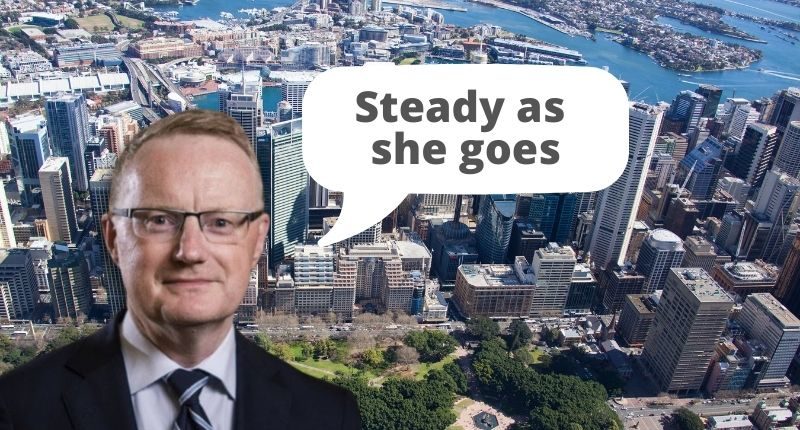
- RBA Governor said wages and inflation remains 'subdued'
- Housing credit growth has picked up including from investors
- Still maintains it is 'unlikely' rates will rise before 2024
At its customary first-Tuesday-of-the-month (excluding January) meeting, the Reserve Bank (RBA) has shocked no one by deciding to keep the cash rate on hold for the seventh consecutive month at the historic low of 10 basis points, or 0.1%.
RBA Governor Philip Lowe said that while the economy has recovered strongly, inflation and wages have remained subdued.
“While a pick-up in inflation and wages growth is expected, it is likely to be only gradual and modest. In the central scenario, inflation in underlying terms is expected to be 1½ per cent in 2021 and 2 per cent in mid 2023,” said Dr Lowe in a statement.
The RBA predicts inflation in the short-term is expected to rise above 3% in the June quarter due to some COVID-19-related price reductions being reserved. Additionally, he forecasts GDP to grow by 4.75% this year and 3.5% next year.
Referencing the property market, Dr Lowe referred to the strengthing of housing with prices rising in all major markets, adding the RBA will monitor borrowing trends and lending standards.
“Housing credit growth has picked up, with strong demand from owner-occupiers, especially first-home buyers. There has also been increased borrowing by investors.
“Given the environment of rising housing prices and low interest rates, the Bank will be monitoring trends in housing borrowing carefully and it is important that lending standards are maintained.”
Philip Lowe, RBA Governor in a statement
Previously, Dr Lowe has said that the RBA is not responsible for house prices, with many arguing APRA is the appropriate body to supervise lending standards.
Dr Lowe concluded his remarks by further reiterating his previous remarks that the cash rate will not rise until inflation is comfortably in the 2% to 3% range. Inflation is about 1% before this range at the moment.
For an inflationary range of 2% to 3% to occur, the labour market will need to tighten such that wages grow faster than currently. This is “unlikely to be until 2024 at the earliest,” Dr Lowe said.







